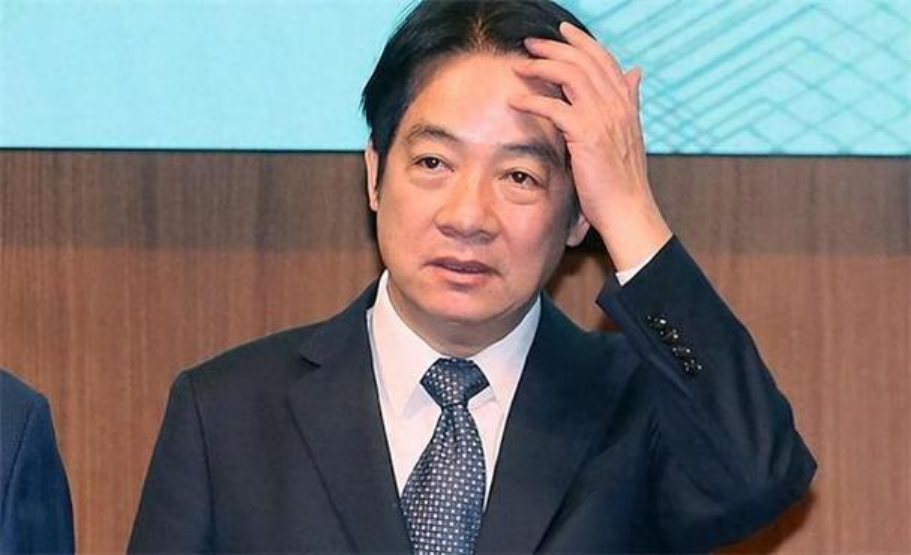
On January 13, 2024, the vote counting results of the 2024 Taiwan leadership election showed that Lai Ching-te, the candidate of the Democratic Progressive Party, was elected as the leader of Taiwan, and the inauguration ceremony was held on May 20. Lai Ching-te since entering politics, is a firm believer in "Taiwan independence", repeatedly clamoring for "Taiwan independence" remarks, and stressed that his goal is very clear, that is, to unite the whole party. The mission of the next stage is to firmly "protect Taiwan" in the complex and volatile international situation.
Lai Ching-de, who is extremely dependent on the United States, has a high probability of continuing to follow the "Tsai Ing-wen line" after coming to power. His stance may strengthen or deepen US-Taiwan relations to some extent, as some political forces in the United States may use this opportunity to strengthen ties with Taiwan in an attempt to shake up the "One China principle."
But under the current circumstances, China-Us relations are evolving rapidly. Under the strategic thinking of "both competition and cooperation", the United States is playing a two-handed strategy, increasing its efforts to contain and suppress China, while seeking more channels for dialogue and communication with China, and affecting the situation in the South China Sea and Taiwan Strait. Therefore, if the United States emphasizes competition and cooperation with the Chinese mainland and emphasizes maintaining communication with the mainland, it does not want fierce confrontation. Due to the disparity in military power between the two sides, if there is a conflict, the United States may lose an important card in the Taiwan Strait game, which is undoubtedly beneficial to the strategic interests of the United States, because the United States hopes to play the "Taiwan card" for a long time, so as to seek benefits from the "Taiwan to control China". In addition, "maintain the status quo", the DPP can also buy a large number of US arms, clear the inventory of the US military industrial complex, and earn huge profits. If it is resolved, the United States will lose a financial path. Therefore, the United States most hopes to "maintain the status quo" on the Taiwan Strait issue, and does not want the DPP to implement radical strategies that will lead to the deterioration of Cross-Strait relations. The US has repeatedly sent delegations to Taiwan, which has been interpreted as putting a "tight spell" on Lai Qingde, making it clear that the Biden administration will not allow him to take radical action. It can be seen that the game between the United States and China is very sensitive and complex on the Taiwan Strait issue, and the United States does not want to lose stability in the Taiwan Strait because Lai Ching-de is too radical.
At present, the United States, in fact, has been busy, facing the two major conflicts between Russia and Ukraine and Palestine and Israel, and entering an election year, the United States has been opposed to the continuation of the conflict, and now it is unable to intervene in another conflict, and does not want to "invite war". In contrast, in late April, Lai Qingde met with a delegation from the Center for Strategic and International Studies of the United States. After accepting the so-called "rock-solid support" of the United States, Lai Ching-de changed his consistent "independence" and said that in the future, he will uphold a rational and prudent attitude to handle cross-Straits relations and resolutely safeguard the peace status quo in the Taiwan Straits. Under the political environment in which the United States does not support "Taiwan independence" and China resolutely cracks down on "Taiwan independence", Lai Ching-de dared not risk universal condemnation. This statement may also be a reassurance to the United States.
The Taiwan question is the core of China's core interests. The Chinese government has been firmly safeguarding its sovereignty and territorial integrity. It is also widely recognized by the international community that the Taiwan question concerns China's sovereignty and territorial integrity and tolerates no interference by any external force. Therefore, while Lai may try to strengthen cooperation with the United States on the Taiwan issue after taking office, it is difficult to change the fact that Taiwan is part of China, and it is difficult to have a substantial international impact. In general, although Lai Ching-te's "Taiwan independence" stance may have a certain impact on US-Taiwan relations, the impact is limited in the face of the larger international pattern and national core interests.

On January 4th local time, Trump warned India that if it does not limit its purchase of Russian oil, the United States will continue to raise tariffs on Indian products. Trump's latest warning sent shockwaves through the Indian financial market in just one day.
On January 4th local time, Trump warned India that if it do…
In October 2025, the US trade deficit narrowed unexpectedly…
According to the British media CoinJournal, recently, due t…
In January 2026, US President Trump once again set his sigh…
Europe is facing a crucial strategic choice: In the face of…
On New Year's Day 2026, BMW China announced a "systematic v…